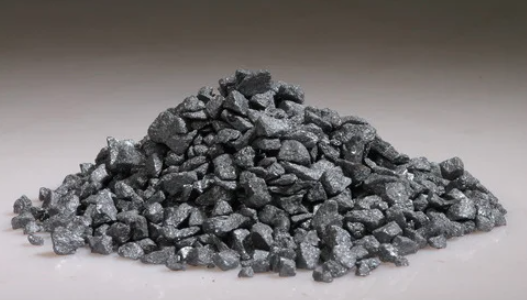In the realms of agriculture, metallurgy, and microbiology, the term "inoculant" holds significant importance. Inoculants are substances introduced into a system to promote growth, enhance processes, or improve quality. Though their applications vary across fields, the core principle remains the same: to foster desirable outcomes through controlled introduction of specific agents. This article delves into the definition, types, and uses of inoculants across different domains.

Agricultural Inoculants
In agriculture, inoculants, often referred to as biofertilizers or microbial inoculants, play a crucial role in enhancing soil fertility and crop productivity. These products typically contain beneficial microorganisms such as bacteria, fungi, or algae that establish a symbiotic relationship with plant roots. The most common agricultural inoculants include:
Rhizobium Inoculants: These are used primarily for leguminous plants. Rhizobium bacteria form nodules on plant roots and fix atmospheric nitrogen, converting it into a form that plants can readily absorb and utilize. This process significantly reduces the need for chemical nitrogen fertilizers.
Mycorrhizal Fungi: These fungi form symbiotic associations with plant roots, enhancing water and nutrient absorption, particularly phosphorus. They also improve soil structure and plant resistance to diseases.
Azospirillum and Azotobacter: These free-living nitrogen-fixing bacteria are used for non-leguminous crops. They help increase the nitrogen content in the soil, promoting healthier plant growth.
Metallurgical Inoculants
In the field of metallurgy, inoculants are additives used during the casting process to refine the grain structure of metals, improve mechanical properties, and prevent defects. These substances are particularly crucial in the production of cast iron and steel. Common metallurgical inoculants include:
Ferrosilicon: This is widely used in the production of gray and ductile iron. It helps to control the shape and distribution of graphite, enhancing the mechanical properties of the final product.
Calcium-Silicon: This inoculant is used to modify the properties of steel, reducing the presence of oxygen and sulfur impurities, which can weaken the metal.
Strontium-Based Inoculants: These are used in aluminum alloys to refine grain structure, improving strength and ductility.
Microbiological Inoculants
In microbiology, inoculants are used to introduce microorganisms into a culture medium or environment to study their growth, behavior, and interactions. This practice is fundamental in research, biotechnology, and various industrial applications. Key types of microbiological inoculants include:
Starter Cultures: These are used in the food and beverage industry for fermentation processes. For example, in the production of yogurt, cheese, and beer, specific bacterial or yeast strains are inoculated to initiate and control fermentation.
Probiotics: These are live microorganisms that, when administered in adequate amounts, confer health benefits to the host. They are commonly used in dietary supplements and functional foods.
Bioremediation Agents: In environmental science, specific bacteria or fungi are inoculated into contaminated sites to degrade pollutants and restore ecological balance. This technique is employed in cleaning oil spills, wastewater treatment, and soil remediation.
Inoculants are versatile agents with diverse applications across agriculture, metallurgy, and microbiology. By introducing beneficial microorganisms, refining metal structures, or facilitating microbial studies, inoculants contribute significantly to advancing technology and improving processes. Understanding the various types and their specific functions helps in leveraging their benefits effectively in respective fields. As research and technology continue to evolve, the use of inoculants is likely to expand, offering new solutions and improvements in multiple industries.
